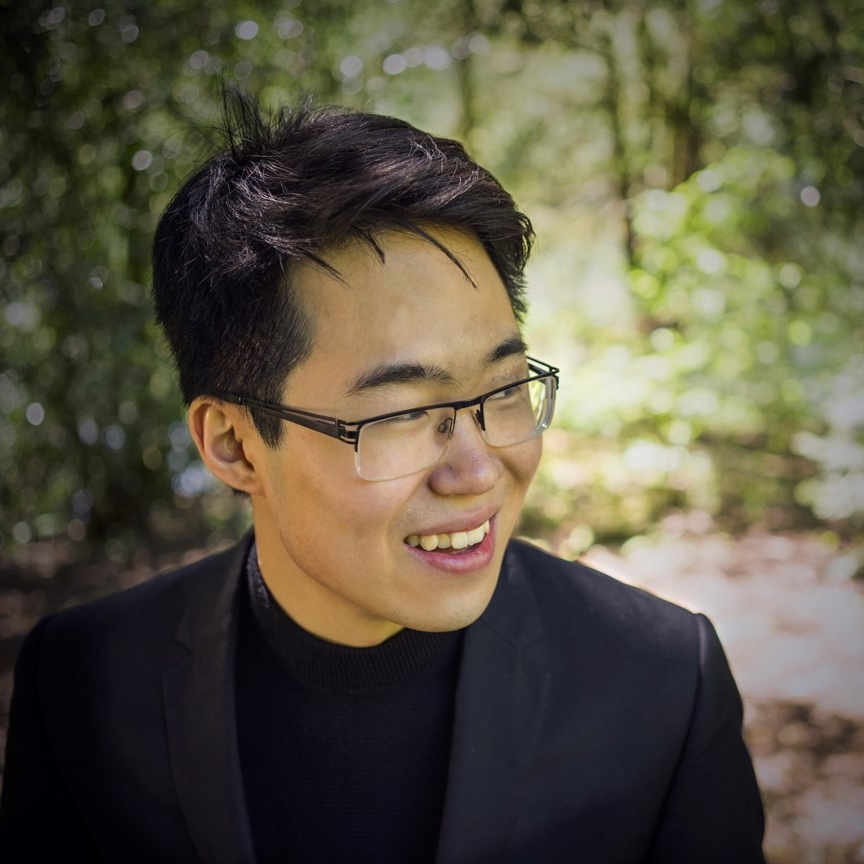The George Butterworth Award is a prize of £1,500 given annually to a UK-based composer for the creation of an outstanding new work developed through one of our artist development Programmes in the previous calendar year. Originally the George Butterworth Award was awarded by the Society for the Promotion of New Music annually between 1993 and 2008 – it has since been incorporated into Sound and Music.
Due to the Covid-19 pandemic, no Award was made in 2021. In 2022, two Butterworth Awards (both of £1,500) are being awarded. Both awardees receive the title of ‘George Butterworth Award 2022 winner’ whether their work was premiered in 2020 or 2021.
Read our Q+A with Eunseog Lee about his award-winning project below.
Tell us about your piece – how did it come about, what was the creative process like?
‘The Babylon Cycle’ was conceived as a long-term project that sought to explore the potential of a cross-cultural integrated compositional approach in the musical expression of the Biblical ‘exile’ – a complex identity wherein the sense of foreignness, distinctiveness, desiderium and expatriation are all entangled with the Christian faith and the hope of an eventual ‘home’ that lies at the heart of it.
This particular iteration involved collaborating with Sumi Kim, a performer and composer of p’ansori (traditional Korean opera) in setting a libretto of Bible verses to music that drew on our respective languages and musical traditions. She came up with some sections of wonderfully expressive lines to the libretto I had compiled, and these, along with the vocal settings I had written, were explored over three days of workshops with six other multidisciplinary musicians, which culminated in a sharing of the work-in-progress at the October Gallery.
It was probably the largest and definitely the most collaborative project I’d worked on – being a composer who generally commits everything down to a score, I found working with improvisatory musicians was very fast-paced and fluid, blurring the lines between collaborative performance and collaborative composition. This led to a completely new way of working, making for a reactive and experimental working environment, anchored by the libretto which quickly established itself as the core of the work.
I had many discussions with Sumi Kim and baritone Brian McAlea about how Korean and Western vocal styles could fit together, which then fed into how the ensemble sections would work with soprano Hannah Littleton and tenor Hugh Benson. A huge part of the process was the contribution of our three instrumentalists, daegeum player Hyelim Kim, cellist Colin Alexander and percussionist Simon Limbrick, whose expertise in improvisatory performance in their respective disciplines was crucial to filling in the gaps in the music and forming the soundscape of the final work.
What does winning the George Butterworth Award mean to you?
It’s a bit unreal! I’m very grateful to receive the George Butterworth Award, and it’s especially humbling to be recognised for this particular work because of the way it came together. Collaborating so closely with this incredible group of musicians to navigate this collision of different cultures, languages and musical traditions in expressing this compound identity of otherness and faith – something very close to my heart – was just a real privilege. Much of the credit for the success of the project goes to those musicians who worked with me on ‘The Babylon Cycle’, especially through all the various challenges and stresses of trying to assemble it all in just under a week! I do think we created something really special together, and I’m very encouraged to have that acknowledged in this way.
How did being on the New Voices programme impact on the development of the work and on you as a composer?
It wouldn’t be an exaggeration to say that being selected for New Voices has been one of the most significant turning points for me as a composer these past few years. Through working on this project alone, I was given the space and opportunity to try out different creative processes that I would have been far too nervous to try before and as a result make fresh observations about my music and discover exciting new possibilities. Sound and Music were relentless with their patience, advice, mentoring and encouragement from beginning to end and I couldn’t be more thankful to them. I also owe a great deal to all the organisations whose support allowed ‘The Babylon Cycle’ to happen, including Arts Council England, the RVW Trust, the London Community Foundation, PRS Foundation, the Garrick Club Charitable Trust and Cockayne.
Photo: ‘Eunseog Lee’ – © Joseph Sy
Credits: THE BABYLON CYCLE by EUNSEOG LEE
- P’ansori part composed by SUMI KIM
- Libretto compiled by EUNSEOG LEE
- P’ansori solo: SUMI KIM
- Baritone solo: BRIAN MCALEA
- Daegeum improvisation: HYELIM KIM
- Cello improvisation: COLIN ALEXANDER
- Percussion improvisation: SIMON LIMBRICK
- Soprano: HANNAH LITTLETON
- Tenor: HUGH BENSON
Read our Q+A with the other award winners – Lunatraktors, for their piece Now the Time – here
The George Butterworth Memorial Fund was established in 1921 by the composer’s family, together with initial trustees including Ralph Vaughan Williams and George Dyson. It was funded by income from the estate of the composer himself who was tragically killed on the Somme during the First World War, having been awarded the Military Cross.


